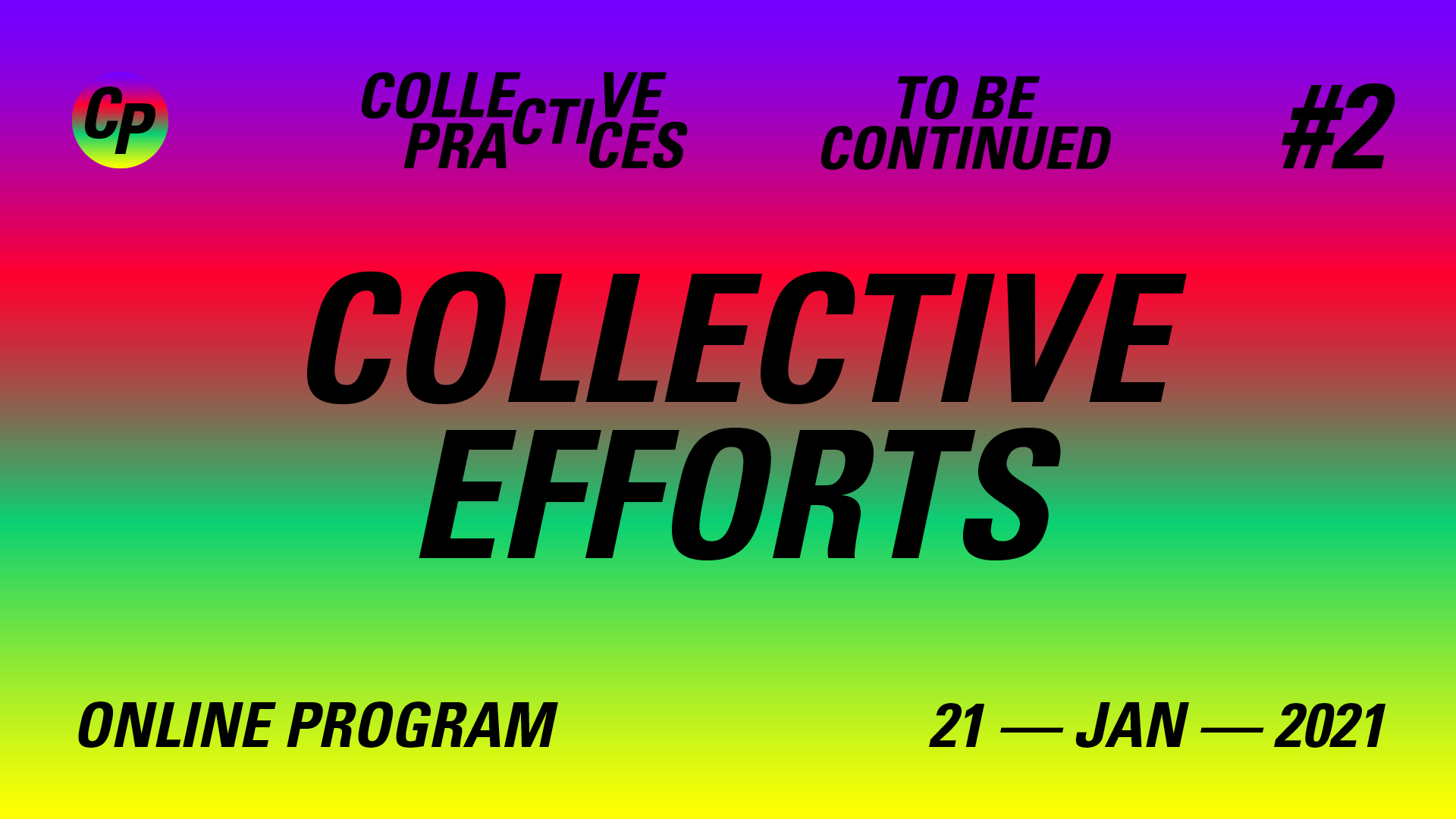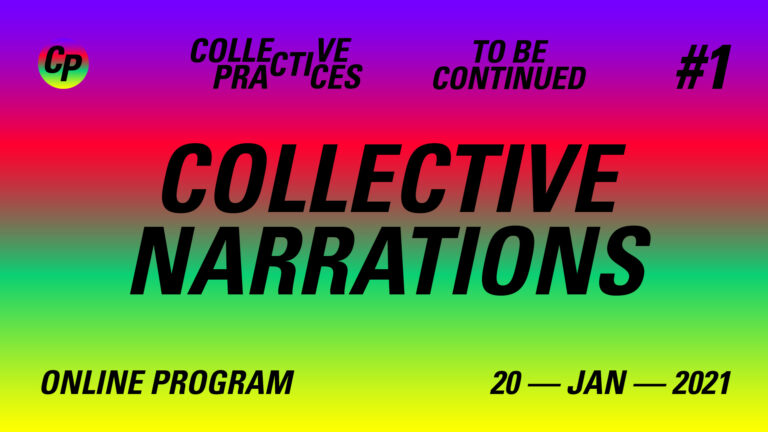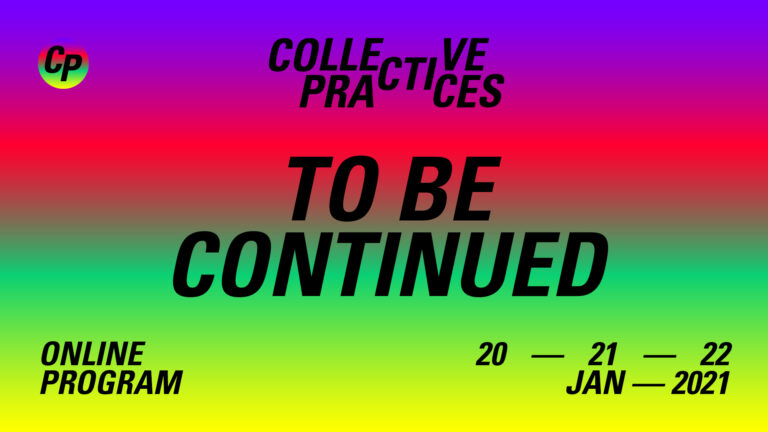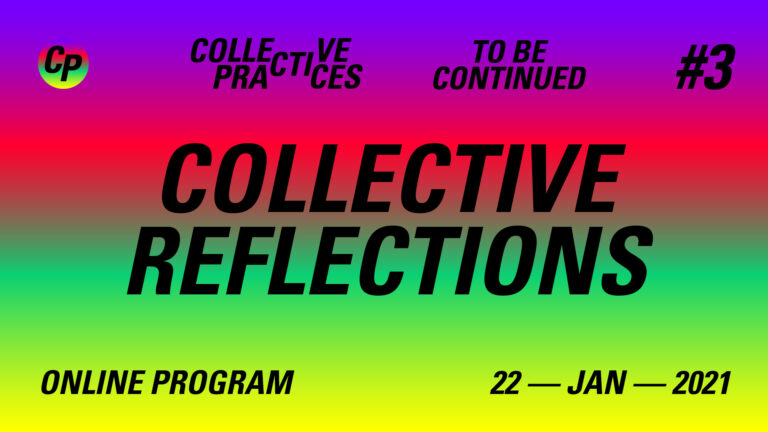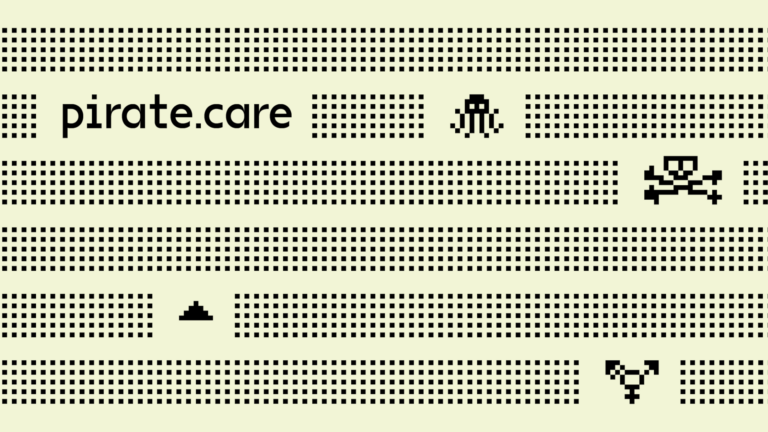Thursday, 21.1. 2-9pm
Care, Solidarity, Horizontal Organizing – Relating without Hierarchy
During our second day of the COLLECTIVE PRACTICES finale, we will be looking at methods of collectively relating and organizing our interactions within contexts of working, living and becoming active for common causes.
2-4pm: Disobedient chains of care: organizing solidarity with agricultural workers, live-in carers, migrants and tenants
5-6:30pm: Solidarity as a Collective Practice
8-9pm: Post-hierarchy: strategies of living and working collectively
>> Join the Facebook Event! >>
Disobedient chains of care: organizing solidarity with agricultural workers, live-in carers, migrants and tenants
with Valeria Graziano & Tomislav Medak, Pirate Care
Presenters:
Katalin Erdődi, Sezonieri
Ana Vilenica, Roof / Radical Housing Journal Collective
Live stream discussion
Live stream on ACUD TV, Facebook and our Website
Pirate Care is a transnational research project and a network of activists, practitioners and scholars who stand against the criminalization of solidarity & for a common care infrastructure. We wish to map and connect collective practices that are emerging in response to the neoliberal “crisis of care” — a convergence of processes that include austerity, welfare cuts, rollback of reproductive rights and criminalisation of migration. In response to that denial of care, imposed by the states and the markets, practices we have called pirate care are organising to help migrants survive at sea and on land, provide pregnancy terminations where those are illegal, offer health support where institutions fail, self-organise childcare where public provision does not extend to everyone, liberate knowledge where access is denied. Crucially, they share a willingness to openly disobey laws and executive orders, and politicise that disobedience to contest the institutional status quo. Our aim is to foster collective learning processes from the situated knowledges of these practices and together with the practitioners of pirate care we have been working on a collaboratively-written Pirate Care Syllabus.
In this panel we will focus on organising solidarity amid the pandemic to support the migrant workers in agriculture and live-in care, migrants excluded from the borders of European union and tenants under the threat of eviction. Starting from there, we wish to discuss larger implications of the present moment on collective organising, as well as the societal provision of care.
Solidarity as a Collective Practice
with Jeremy Gilbert
AG “Right 2 the City” – Deutsche Wohnen Enteignen – Adelaide Ivánova & Laura
moderated by Andrea Goetzke
Live Stream discussion
Live stream on ACUD TV, Facebook and our Website
In this session we aim to explore practices and concepts of solidarity – as a meta collective practice and imaginary of relation at the level of societies. During the months of the Covid-19 pandemic, the concept of solidarity frequently appears in the news headlines – in forms of solidarity with those at risk of complications from infection, with hospital workers, with your local corner pub, with those severely affected by the pandemic anywhere in the world. It is now called upon when distributing vaccines. Solidarity does not equal charity though. In solidarity, class, feminist or race struggles have joined forces in the past. Struggles for affordable housing for everyone, for a sustainable life on earth for all beings, or for open borders and rights for migrants bring different groups together in a shared vision.
Departing from an idea of solidarity as a coalition in a shared interest, in a shared utopia of a society or world we would like to live in collectively – we would like to explore and understand conceptual facets, visions and stumbling blocks, as well as learn from lived experiences and examples.
How can we work together across difference? How can we ensure that all voices are collectively heard, and stronger groups won’t define a struggle for minority ones? Can solidarity provide a meta structure for bringing different struggles together? How can we understand, deal with and communicate complexities of difference?
How can solidarity be practiced across hierarchies of privilege? Can a privileged person be in solidarity with an oppressed person, if they systematically benefit from their oppression, or can solidarity in that case only mean working towards radically changing the system (or at least try)? How do we deal with privilege and hierarchy in a solidary movement?
Can solidarity bring together people in a cause, if their objectives only overlap, but aren’t the same overall – like a fight for better working conditions combining anti-capitalists and people who just want a better wage.
Solidarity is different from charity – How can we possibly strengthen solidarity to bring people together in a struggle, rather than in a hierarchical idea of charity. And are both important?
Does our vision of democracy require solidarity as a necessary component? Can solidarity be a useful concept to include also non-human conditions? Is solidarity a challenge to power structures, or does it hold the potential to build yet other hegemonies?
How can we relate to each other more in solidarity, and make solidarity a principle of relation that’s much more in the foreground for everyone?
Post-hierarchy: strategies of living and working collectively
with Marte Roel & Christian Cherene / BeAnother Lab; Louis Mauff, independent researcher; Lulu Obermayer / KuLe, Berlin
Moderated by Daniela Silvestrin
Live Stream discussion
Live stream on ACUD TV, Facebook and our Website
In this panel in the context of COLLECTIVE EFFORTS, we will be reflecting on collectivity in cultural (and other) work situations on a meta level by looking at the working structures and conditions of artistic (an other) collective work as such. What aspects and challenges of collective work are at the center of successively working and living in collective structures? How to deal with (personal) responsibility and trust in collective processes, what are the challenges of artistic creation and creative processes in collective structures? How can traditional relations of dominance and informal hierarchies be overcome in a truly post-hierarchical structures of collective work and sharing of responsibilities? These and other related questions will be discussed with different researchers, artists and cultural facilitators from Berlin and beyond.
Streaming Partner: Boiling Head Media

